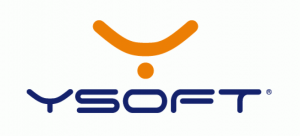Further tightening of the investment screening regime for foreign investors in Germany and Europe
26.11.2020Company: TaylorWessing e|n|w|c advokáti v.o.s.
In the wake of the Covid-19-crisis and the fear of a sellout of domestic companies to third-country investors, European countries are again tightening their investment screening regimes and/or implementing new rules.
Case in point, the UK has recently introduced an investment screening procedure (see article from Paolo Palmigiano). Many regulations are based on the so-called EU Foreign Direct Investment Regulation (Regulation (EU) 2019/452) ("EU Screening Regulation"). Throughout 2020, Germany has adopted various amendments to its Foreign Trade and Payments Act ("AWG") and its Foreign Trade and Payments Ordinance ("AWV", see last update from June 2020). For instance, the notification obligation for acquisitions of target companies acting in fields of non-military security has been broadened (so-called cross-sector screening) and a prohibition of execution of the transaction prior to its approval was introduced. A core element of the new legal framework is the EU-wide cooperation mechanism, established by Art. 6 et seq. EU Screening Regulation. It came into force in all Member States when the EU Screening Regulation took effect on 11 October 2020. The German government has now adopted further changes to the investment screening regime within the framework of the 16th Amendment to the AWV and has already envisaged the 17th Amendment to the AWV.
The investment screening regime pursuant to Sec. 55 et seq. AWV by the Federal Ministry for Economic Affairs and Energy (BMWi) serves to prevent potential security risks caused by takeovers of German companies by (Non-EU-)foreigners. The target company's activities and the percentage of the shareholding to be acquired are paramount. If so-called critical infrastructures are concerned or target companies acting in defense or security-relevant sectors, an obligation to file a notification would arise. The BMWi can prohibit or approve transactions subject to conditions of a threat to public order or security (in the area of the so-called cross-sector review) or if essential security interests of Germany are endangered (in the area of the so-called sector-specific review).
The main changes of the 16th Amendment to the AWV at a glance:
- The regulations of the AWV will be adapted with a view to Germany's participation in the new EU-wide cooperation mechanism. Thus, the standard of screening will be extended in particular to public order or security in other EU Member States. Previously, only the security interests of the Federal Republic of Germany and the public order or security of the Federal Republic of Germany and the Union had been the yardsticks in German investment screening.
- The EU-wide cooperation mechanism itself is based on the EU Screening Regulation. A transfer into German law is not necessary, as the Regulation is directly applicable.
- The Member States are obliged to inform the European Commission and the other Member States of all ongoing foreign direct investment screenings. Any Member State may forward comments to the Member State carrying out the screening, if it deems that investment in question is likely to affect its public order or security. The Member State reviewing the foreign investment must duly take the comments of this other Member State into consideration.
- The BMWi has established a national liaison office to coordinate the exchange with the other EU Member States.
In the last step for the time being, more extensive adjustments will follow in the course of the 17th Amendment to the AWV. The draft of the amendment is currently being coordinated within the government. The focus of the 17th Amendment to the AWV is, in particular, the further expansion of case groups subject to the obligation to file notifications and the prohibition of takeovers (previously Sec. 55 para. 1 p. 2 AWV) for so-called critical technologies. This catalog is set to contain critical technologies such as: artificial intelligence, robotics, semiconductors, biotechnology and quantum technology.
Consequences for the M&A-practice:
The EU-wide cooperation mechanism and involvement of other member states may cause a further prolongation of screening procedures. However, in reaction to critics re. the length of the procedures the legislator had already in July introduced a revised deadline regime (new Section 14a AWG-E). This should enable at least simple screening procedures to be completed more quickly in future.
Due to the expanded review standard (including public order and security of other EU member states), the risk of prohibitions increases. In terms of target companies that operate in the field of critical technologies, careful and timely preparation of the transaction, taking into account the new legal requirements, will be more important than before. Future acquisitions by non-EU foreign acquirers in these fields will have to be notified to the BMWi and can be executed only after approval by the BMWi. Providing the purchaser with company-related information (relevant for the investment screening) or disclosing it in any other way is forbidden (including the due diligence process). Against the background of the 10% screening threshold, special attention must be paid to the percentage of the shareholdings being calculated both in the context of the cross-sectoral and the sector-specific review.
Tags: Law | Finance | Business Development |







